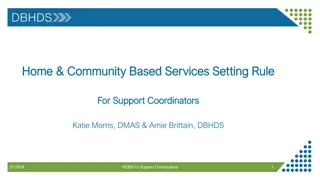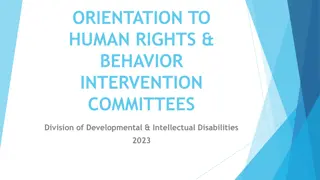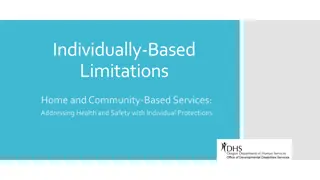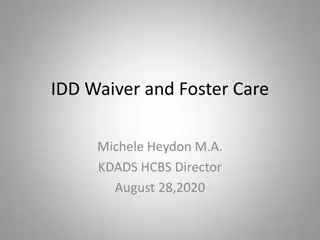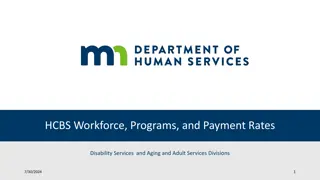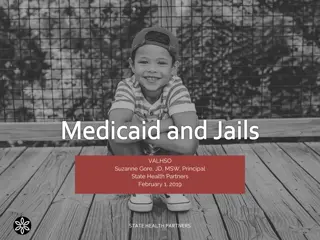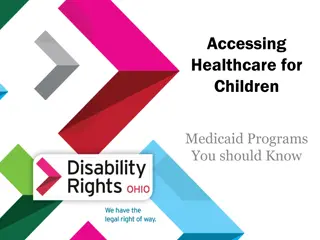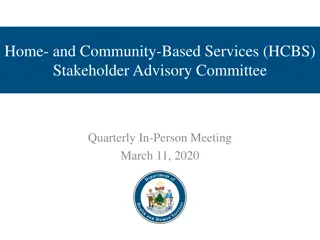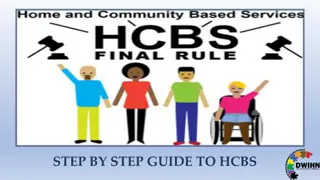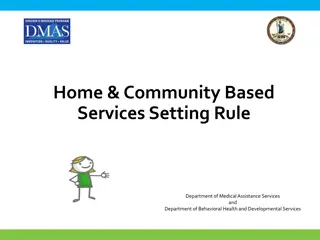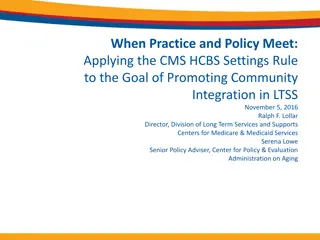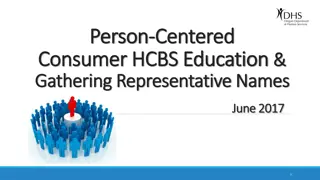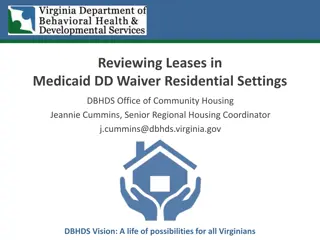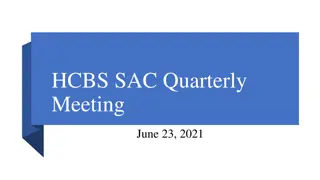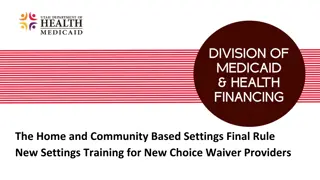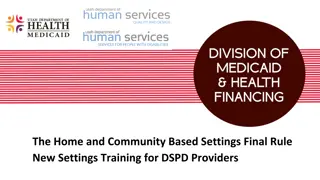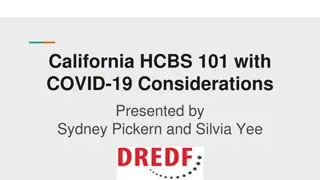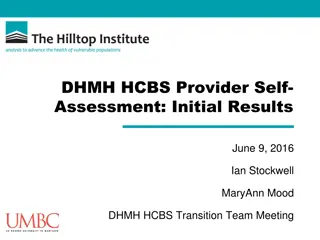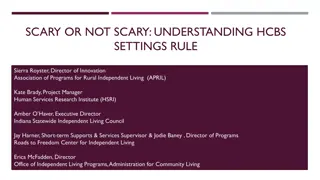HCBS Final Rule for Medicaid-Funded Services
The HCBS Final Rule, announced by CMS in 2014, affects Medicaid-funded residential and day services. It aims to enhance choice, person-centered planning, and integration into the community for individuals receiving HCBS. Key requirements include autonomy, privacy, competitive employment opportunities, and the right to choose services and service providers. The rule emphasizes dignity, respect, and independence for individuals with disabilities or special needs in both residential and day settings.
Download Presentation

Please find below an Image/Link to download the presentation.
The content on the website is provided AS IS for your information and personal use only. It may not be sold, licensed, or shared on other websites without obtaining consent from the author.If you encounter any issues during the download, it is possible that the publisher has removed the file from their server.
You are allowed to download the files provided on this website for personal or commercial use, subject to the condition that they are used lawfully. All files are the property of their respective owners.
The content on the website is provided AS IS for your information and personal use only. It may not be sold, licensed, or shared on other websites without obtaining consent from the author.
E N D
Presentation Transcript
Getting to Know the HCBS Final Rule Jamie Ray-Leonetti Associate Director of Policy
Pennsylvanias University Center for Excellence in Developmental Disabilities Education, Research and Service
VISION A society where all people are valued and respected, and where all people have the knowledge, opportunity and power to improve their lives and the lives of others. MISSION The Institute on Disabilities at Temple University learns from and works with people with disabilities and their families in diverse communities across Pennsylvania to create and share knowledge, change systems, and promote self-determined lives so that disability is recognized as a natural part of the human experience.
What is the HCBS Final Rule? Announced by Centers for Medicare and Medicaid Services (CMS) in January 2014 Impact residential and day service settings funded through Medicaid where Home and Community Based Services (HCBS) are provided Intended to promote choice of daily activities and person-centered planning
All HCBS Settings Must - Be integrated in and facilitate access to the greater community; Allow individuals optimized autonomy and independence in making life choices; Be chosen by the individual from among residential and day options, including non- disability specific settings;
All HCBS Settings Must (cont.)- Ensure right to privacy, dignity and respect (including no coercion or restraint); Provide opportunity to seek competitive employment; Provide for choice of roommate in a residential setting; and Encourage choice of services and choice of who provides them.
Additional Requirements Residential Settings Provider Owned- Have a written lease; Privacy in the unit including an entrance the individual can lock (key staff may have a key based on individual s need); Choice of roommates; Ability to decorate the unit just as any other leaseholder; Control of schedule and daily activities;
Residential Provider Owned (Cont.) Access to food at any time; Visitors of their choosing at any time; and A unit that is physically accessible to the individual.
Timeline for Implementation - Rule introduced January 2014 Rule took effect March 2014 Rule compliance deadline extended to March 17, 2022
Where are we now? Statewide transition plans Pennsylvania currently has conditional approval There will be another period of public comment before final approval is granted in PA The public comment period is IMPORTANT
Why is the Comment Period Important? This is a chance for self-advocates to have their voices heard; This will likely be the last opportunity for public comment before the plan becomes final; and Public comments can help to protect the role of person-centered planning and personal choice.
Benefits of the Rule - Focuses on activities and opportunity for community engagement not focused on a place, or four walls of a facility . Emphasizes the central role of the individual in building their everyday life Recognizes that no two everyday lives look alike
Benefits (cont.) - Requires person-centered planning Never one size fits all
Potential Challenges of the Rule - Making sure families and people with disabilities are informed Ensuring that current day and residential HCBS programs comply with the Rule Changing the way providers due business Changing the way individuals think about their day
Institute on Disabilities at Temple University 1755 N 13th Street Student Center, Room 411S Philadelphia, PA 19122 Tel: 215-204-1356 Fax: 215-204-6336 Email: IOD@temple.edu Web: www.disabilities.temple.edu MY contact information: Tel: (215) 204-9543 Email: jamie.ray-leonetti@temple.edu




